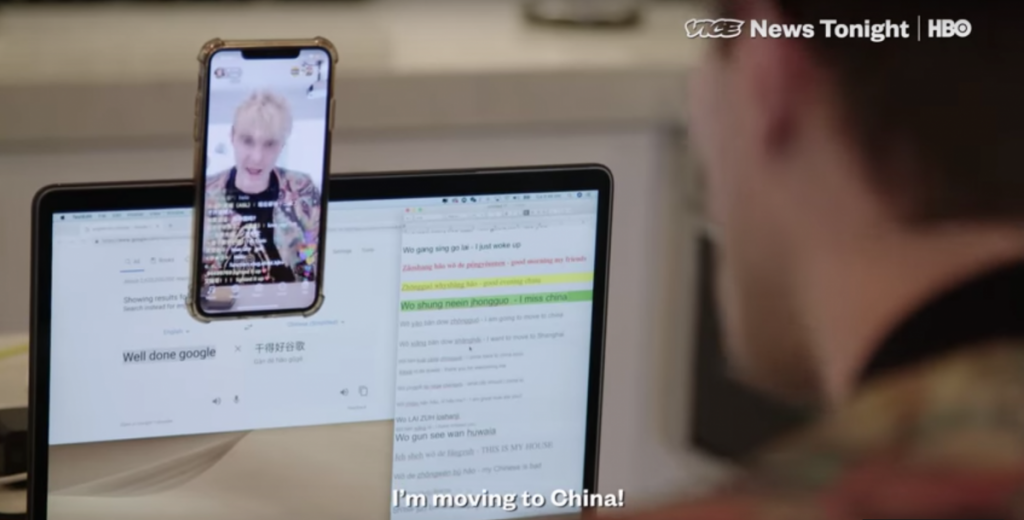A growing number of Chinese viral short videos are reuploaded on Western social media accounts, bringing them global attention. And in most cases, the original creators are not even aware of it.
“I can hardly believe that so many people abroad have seen my videos,” Chinese viral sensation Liu Shichao told TechNode.
Liu was shocked when told that some of his short videos had gone viral on Twitter, a social network blocked in the country he lives. “I’m very, very surprised because that video was made about two years ago, and I don’t even know who spread it abroad,” he said.
The 33-year-old Chinese farmer has never left China, nor has he ever accessed foreign social media platforms like Twitter or Instagram. But that didn’t stop his clips uploaded to Chinese social network Kuaishou from scaling the Great Firewall and racking up clicks in the West.
Liu’s videos join a growing trend in which Chinese viral content is reuploaded on Western social media accounts, bringing them global attention. And in most cases, the original creators are not even aware of it.
While one of his short videos originally posted on Kuaishou racked up nearly 12 million views on Twitter, Liu’s life remains relatively unchanged. When TechNode reached out to Liu last Thursday, he was busy harvesting corn in a small village in northern China’s Hebei province.
In the aforementioned video, Liu glugs down a half bottle of beer followed by a ghastly concoction containing the rest of the beer, a glass of burning baijiu liquor, a can of Pepsi, and even a raw egg. The whole process takes less than one minute.
He first became aware of the situation later last month when he woke to messages from many newly registered users on Kuaishou. It took a while for him to figure out why all these people were contacting him since the messages were mostly in English and he had to translate them.
“One message told me that I was a celebrity now in America,” he said. “So I chatted with the person [who sent the message] for a whole day, with the help of translation software.”
A picture of life in rural China
Liu is one of the thousands of Kuaishou bloggers who are willing to test their limits by performing dangerous or just plain bizarre acts, just to please their followers.
The Beijing-based social network allows users to upload short videos varying in length from a few seconds to a couple of minutes each and has accumulated around 300 million monthly active users (MAU) as of July, dwarfed by Bytedance’s similar offering Douyin with over 400 million MAUs as November.
Kuaishou is especially popular among rural communities and migrant workers in the country, leading some to refer to the app as a “mirror of life in rural China.”
Close to two-thirds of Kuaishou users live in China’s third-tier cities or below, which excludes most larger provincial capitals and major metropolises such as Beijing and Shanghai, according to a report by Chinese research firm TalkingData.
The app’s content, however, is often chastised by cyberspace watchdogs and state media for being “vulgar.”
In a yearlong campaign aimed at “cleaning up” the web, the Cyberspace Administration of China, the country’s top internet regulator, in March 2018 ordered Kuaishou to remove harmful and vulgar content. The app was later removed from the country’s Android app stores and was not allowed to provide updates for iPhone users via the App Store.
The app became available again after the company made a public apology and promised to remove vulgar, pornographic, or violent content.
Though the above-mentioned video was a hit on Twitter, it’s no longer available on Kuaishou, to which it was uploaded in January 2018.
The video racked up over 50,000 likes and 6,100 comments within one month of going live before it was taken down by Kuaishou. The platform marked the video as “inappropriate for publishing,” according to a screenshot of Liu’s Kuaishou user interface seen by TechNode.
Liu said that Kuaishou removed more than 100 of his clips and suspended his account for nearly four months during what he called “tough crackdown” in the first half of 2018.
He told TechNode that he rarely makes videos similar to that one because Kuaishou no longer “promotes this kind of content.”
“They might think that these videos encourage teenagers to consume alcohol,” he said.
He recently registered an account on Twitter and began to post similar videos that are no longer welcomed by Kuaishou. He soon amassed nearly 250,000 followers on Twitter and each of his videos usually earns him hundreds of retweets and thousands of views.
Kuaishou declined to comment.
Blurred boundaries
It is widely acknowledged that Chinese internet culture usually doesn’t translate well in a global context. It is rare to see Chinese internet slang or memes spread to other countries.
This is mainly due to language barriers, as well as the fact that the country’s strict internet controls force people to express themselves in more obscure ways.
But when it comes to online video content, international boundaries are disappearing.
“Videos, animations, and games are more visual, so they are easier to absorb and understand,” Ross Settles, an adjunct professor of media innovation and entrepreneurship at the University of Hong Kong, told TechNode.
“The great thing about the short video is that it has to tell a very quick and simple story,” he added. “It’s very crisp and the message is very clean.”
The fact that most short-video content produced on China’s internet is light-hearted is also a contributor. Fun content is a universal need and a language that everybody can understand.
Chen Zhanwei, a 25-year-old vlogger based in the southwestern city of Chengdu, has also been garnering large viewer numbers on YouTube, another platform inaccessible within China.
These videos, which tell the stories of the four cats that he raises, were originally uploaded to Chinese video-streaming sites such as Bilibili and Weibo. But they have also gained a following beyond the Great Wall after Chen uploaded them to YouTube, despite them being in Chinese.
“It was unbelievable because my videos are all in Chinese, but there are millions of people watching them, and many of them are commenting in other languages besides Chinese,” said Chen, adding that his most popular upload on Youtube has attracted more than 43 million clicks.
Settles suggests that that Chinese internet culture used to thrive in platforms that were only used by Chinese or people connected with the country, such as Tencent’s social networking app WeChat. However, thanks to Chinese short video apps like TikTok, the international version of Douyin, Chinese internet culture is drawing eyes in the outside world.
“It’s not that Chinese internet culture is so different that no one would understand. It’s that it was just not visible for most international users,” he said.
– This article originally appeared on TechNode.








